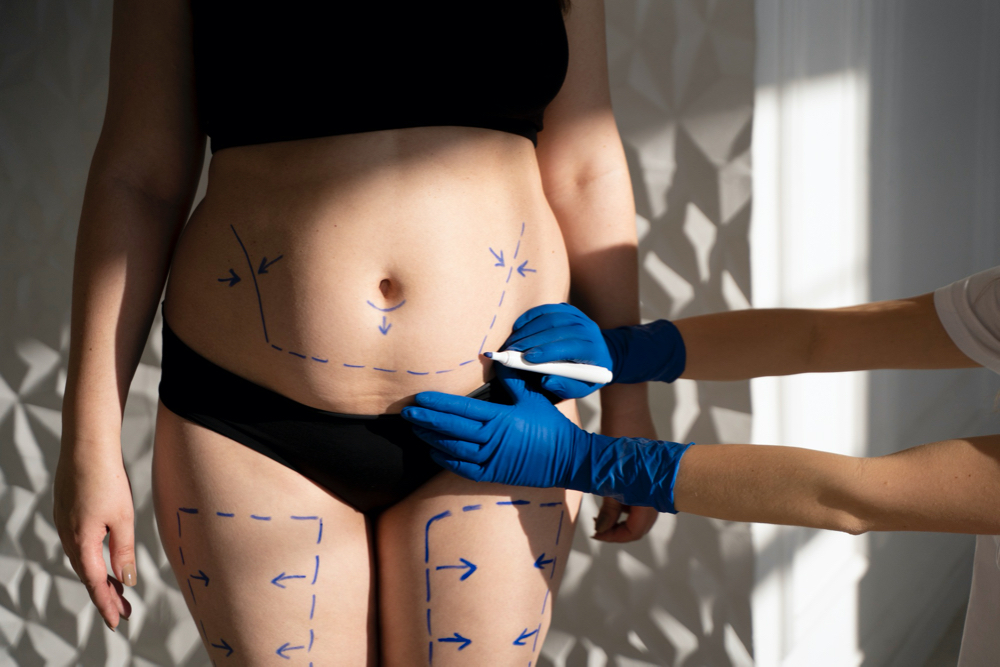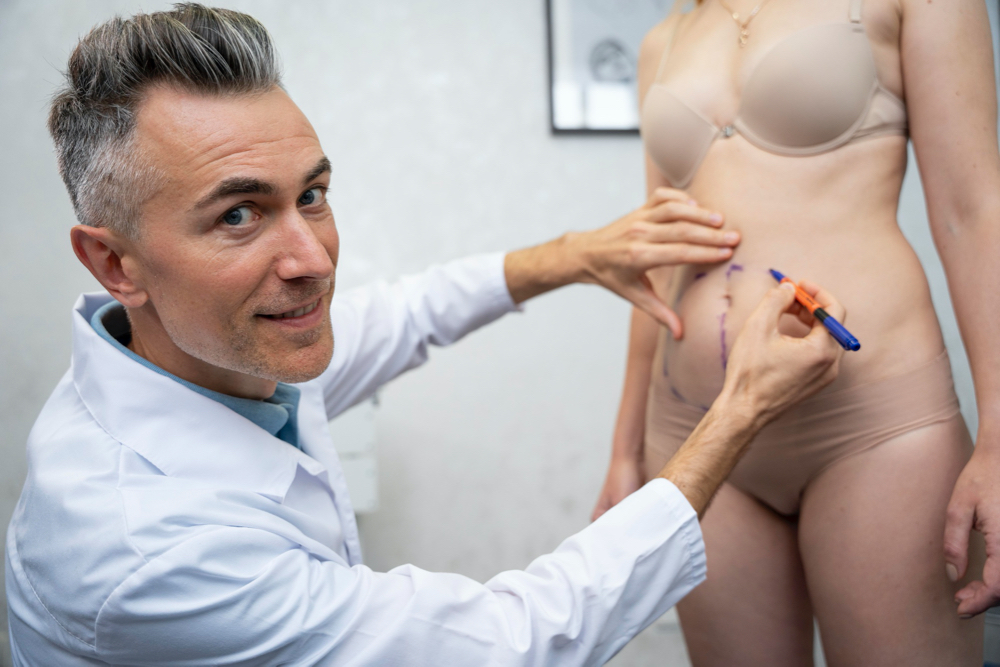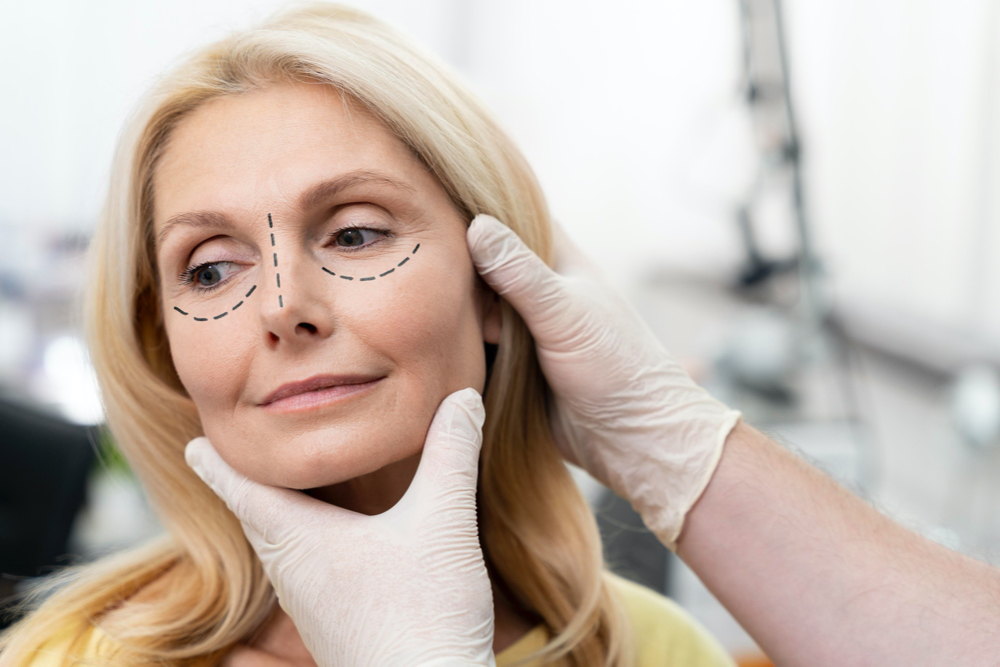- Fast results
- 4,000+ locations
- 4.8 star rating
Need Help? (888) GET LABS



Going through plastic surgery requires ample planning and preparation. How you set the motion to avail of a particular plastic surgery procedure determines its success. In this guide, we’ll walk you through the process of how to prepare for plastic surgery and discuss the potential risks. Plus, see the expert tips on how you can minimize those risks.
During your medical appointment with the plastic surgeon, you’ll undergo a proper evaluation and an orientation on how the procedure works. Seeing that there are sufficient sessions for consultations with the specialist allows for smooth pre-op plastic surgery planning.
Part of the consultation is setting realistic expectations. Your surgeon may show rendered before-and-after images based on 3D modeling and simulations(1) to help you understand the outcome.
In addition, you may also be required to undergo a physical exam relevant to the procedure. This may include a pre-op (plastic surgery) panel blood test. Certainly, your medical history will be reviewed, including previous surgeries, medications, chronic conditions, allergies, etc.
Based on your medical information, your doctor will also evaluate your risks, allowing you to make well-informed decisions regarding the timing and suitability of the procedure. You may receive a personalized pre-op plan to minimize the risks.
Lastly, these consultations allow you to ask questions and get to know your surgeon. Trust and rapport are crucial in the process of preparing your mental state throughout plastic surgery.
Aside from a general pre-operation checklist, your surgeon may add specific instructions tailored to the type of plastic surgery you will undergo and your unique attributes. These instructions include the following:
General pre-operation plastic surgery checklist:

| Pro tip: Individuals who are long-time smokers shouldn’t quit smoking cold turkey due to the potentially grueling withdrawal symptoms. Therefore, if you wish to undergo plastic surgery, it’s crucial to quit smoking the right way, even before your first plastic surgery pre-op appointment. |
For some people, plastic surgery is life-changing in that it improves their confidence and even quality of life. Others perceive it as a nice-to-have procedure to address certain imperfections. Either way, everyone interested in plastic surgery expects a positive experience. The degree, however, may vary, especially after the operation.
The biggest mental challenge in plastic surgery is aligning expectations with the results. Hence, it’s imperative to level expectations and keep them realistic during the pre-op phase. In doing so, your doctor will check your mental preparedness(4) for the process, understand your goal, and match it with the result that plastic surgery can accomplish.
Even before the pre-op appointment, be sure to condition yourself that plastic surgery, on its own, does not guarantee a drastic improvement in your life. Be aware of the risks and choose a highly qualified, board-certified plastic surgeon to perform the procedure. It will also help if you talk to someone who has undergone the same operation.
Lastly, surround yourself with people who support you and keep you grounded regarding your expectations.
After the procedure, your next goal is to heal and recover smoothly at home. The typical recovery period for plastic surgeries is within two weeks. To ensure you heal quickly, ensure that you set up your routine post-op. Consider the following when planning this period:

Plastic surgery has come a long way since Gaspare Tagliacozzi(5) detailed a primitive method of nasal reconstruction in 1597. Contemporary reconstructive surgery procedures have become more advanced, ensuring safety and effectiveness. As a result, more people have seen plastic surgery mainly as a cosmetic procedure specialists perform as part of their routine.
However, despite the advertised normalcy of plastic surgery, equating to safety, there are still risks tied up to the fact that it is an invasive procedure. These risks include the following:
As with other types of invasive operations, there are risks to consider. However, considering the length of progress in surgical procedures, these risks can be easily avoided. To do that, consider these expert tips:
When looking for a plastic surgeon, make sure to check their license and track record. Board-certified surgeons are regulated by an authoritative body, which translates to accountability and competence.
Your surgeon typically provides specific pre-op instructions involving skin prep. This checklist depends on the type of cosmetic surgery you’ll go through or any unique factors or attributes you have.
Generally, to prepare your skin for plastic surgery, you need to wash it thoroughly with antibacterial soap. Prior to that, make sure you are properly hydrated so your skin stays elastic and not dry. Don’t forget to apply sunscreen, too. It’s also best to withdraw from smoking and maintain a balanced diet.
Ignoring any pre-op instruction and not letting your surgeon know before the operation can spell disaster for your plastic surgery and overall health. Some of the worst mistakes you should avoid before the procedure include failure to fast so close to the surgery, taking medications that might interfere with the anesthesia or with the procedure in general, drinking alcohol within 24 hours before the operation, and not disclosing any crucial health information.
A light diet is often recommended for patients undergoing plastic surgery. Keep in mind, however, that you should start fasting, typically 8 to 12 hours before the operation. Your last meal before fasting should be easy to digest and have the right proportion of protein, carbohydrates, and fiber. Avoid foods that make you full or can cause indigestion, like spicy or minty foods. For a more tailored meal for your plastic surgery, consult your doctor.
Planning for plastic surgery shouldn’t be limited to your physical and financial capacity. As with any cosmetic surgery, it can be a life-altering decision that could influence your mental state in the long run. Make sure you are prepared for the potentially permanent change. Choose a plastic surgeon with a stellar reputation and proven competence. Take the proper screening included in the pre-op panel blood test and arrange your recovery routine.
1 Khan G, Choi YS, Park ES, Choi YD. The Application of Three-Dimensional Simulation Program and Three-Dimensional Printing in Secondary Rhinoplasty. J Craniofac Surg. 2018 Nov;29(8):e774-e777. doi: 10.1097/SCS.0000000000004737. PMID: 30028398.
2 Van Slyke AC, Carr M, Knox ADC, Genoway K, Carr NJ. Perioperative and Long-Term Smoking Behaviors in Cosmetic Surgery Patients. Plast Reconstr Surg. 2017 Sep;140(3):503-509. doi: 10.1097/PRS.0000000000003604. PMID: 28841611.
3 Davies A, Pang WS, Fowler T, Dewi F, Wright T. Preoperative fasting in the department of plastic surgery. BMJ Open Qual. 2018 Nov 10;7(4):e000161. doi: 10.1136/bmjoq-2017-000161. PMID: 30515463; PMCID: PMC6231091.
4 Rehman U, Perwaiz I, Sohaib Sarwar M, Brennan PA. Mental health screening in facial cosmetic surgery: a narrative review of the literature. Br J Oral Maxillofac Surg. 2023 Sep;61(7):455-463. doi: 10.1016/j.bjoms.2023.05.003. Epub 2023 May 15. PMID: 37442708.
5 Tomba P, Viganò A, Ruggieri P, Gasbarrini A. Gaspare Tagliacozzi, pioneer of plastic surgery and the spread of his technique throughout Europe in “De Curtorum Chirurgia per Insitionem”. Eur Rev Med Pharmacol Sci. 2014;18(4):445-50. PMID: 24610608.
6 Ng WK, Kaur MN, Thoma A. Plastic surgeons’ self-reported operative infection rates at a Canadian academic hospital. Plast Surg (Oakv). 2014 Winter;22(4):237-40. doi: 10.4172/plastic-surgery.1000890. PMID: 25535460; PMCID: PMC4271751.

© Copyright 2024 Personalabs. All Rights Reserved.

We now offer pharmacy discounts through our PersonalabsRx platform.
We now offer pharmacy discounts through our PersonalabsRx platform.